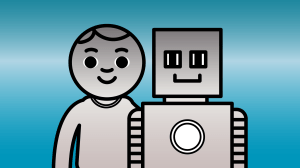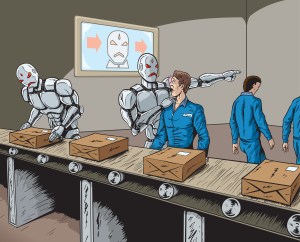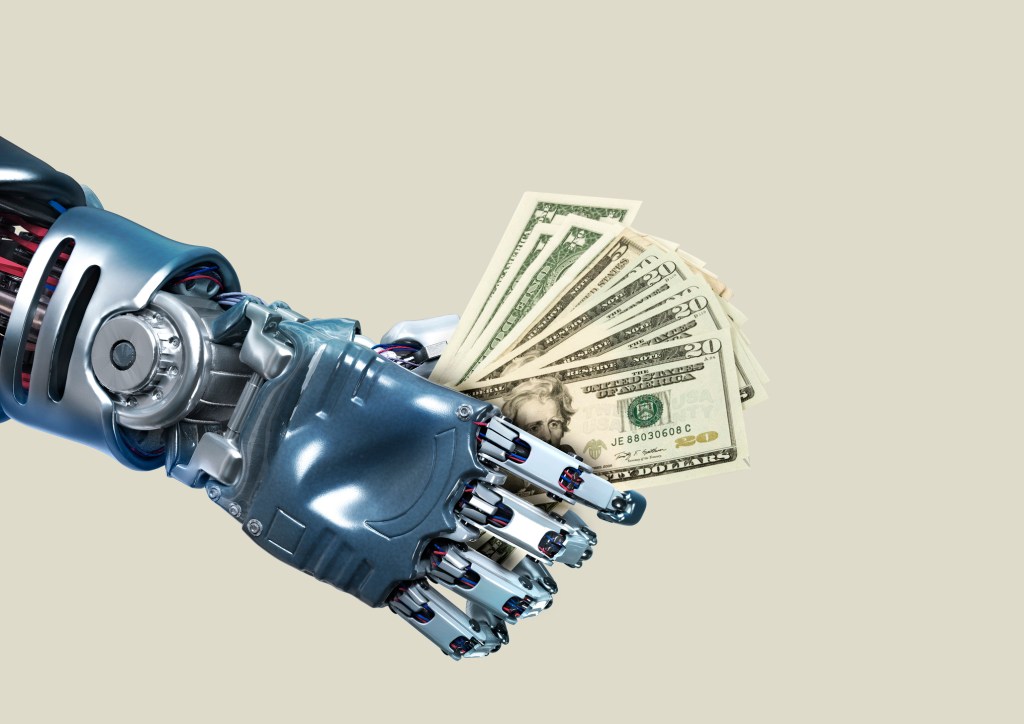Steve Cousins
More posts from Steve Cousins
When Bill Gates recently suggested robots should pay income tax like any other employee, I didn’t immediately disagree. I applaud Gates’ bold thinking to help solve one of society’s biggest upcoming challenges: embracing automation in a way that “lifts all boats” instead of leaving large swaths of society behind.
A robot tax would help offset the reduced revenues flowing into public coffers as machines take some jobs previously held by humans.
However, before we start taxing companies that deploy robotics, let’s first agree on what a robot actually is.
When we think of robots, we typically conjure up images of giant arms building cars on an assembly line, or autonomous delivery vehicles ferrying goods around warehouses. But the classic definition of a robot is fairly simple: a combination of technologies that together sense, evaluate, and act to carry out a defined task.

The problem with this definition is that it’s so broad, it would categorize almost all technology – including most modern household appliances, computers, and smartphones – as robots. So where do we draw the line? Indeed, why single out robots to be taxed and not other technology that increases automation, productivity, or quality?
Is the technology that translates a surgeon’s hand movements into more precise movements of tiny instruments considered a robot? How about an ATM, an automated grocery checkout station, or a refrigerator that tells you when you need milk?
We could narrow the definition of a robot to include only those machines that do tasks once done by a human, but then we’d have to include Microsoft’s vast hardware and software offerings, since computers do things like word processing, transcribing, calculating mathematical formulas, and analyzing data – all of which used to be human tasks.
When you think of all the once-human tasks now done by machines, it quickly becomes clear how difficult it would be to separate certain automation technologies into the “robot” category. And if a robot tax was imposed, why wouldn’t a company simply classifying their new automation technology as “computers”, “appliances” or “equipment”?
Of course, implementing a robot tax wouldn’t just be difficult due to the challenge of defining what is and isn’t a robot. It would also be nearly impossible to prove a direct correlation between the implementation of automation technology and the net loss of jobs. In some rare instances, a company might deploy an automation device and then simultaneously lay off a person. But most companies don’t operate like this.

They continually deploy new technologies to improve productivity, laying off some workers while hiring others. In fact, if a robot causes one person to lose a job, perhaps three new people will be hired – one to run the robot and two others because the robot improves overall productivity, allowing for expansion hiring.
In reality, robots, like most automation, help people be more efficient and productive, rather than replace them. That’s been the case for centuries. A study of census data in England and Wales since 1871 found technology created far more jobs than it destroyed during that 140-year period. “Machines will take on more repetitive and laborious tasks, but seem no closer to eliminating the need for human labor than at any time in the last 150 years,” says the Deloitte report.
When Gates talks about a robot tax, in essence, he’s talking about financially penalizing companies that deploy the latest automation technology — a sort of “innovation tax” — which, to me, is a backward tax.
Shouldn’t our government support companies that embrace innovation in an effort to improve productivity and boost revenues? That’s what will make the US economy strong and competitive on a global scale.
Perhaps a better way to ensure that automation improves the lives of all citizens — instead of becoming a wedge that creates a bigger and bigger divide between the haves and have-nots — is to ensure corporations pay tax on their profits.

The more profitable a company becomes due to automation and increased productivity, the more income taxes it should pay into the collective system. Of course, closing loopholes that allow US corporations to dodge taxes will be difficult, but it’s critical to the long-term health of the global economy.
Getting companies to pay their fair share of taxes won’t solve the larger societal challenge that automation will eventually displace low-skilled workers, nor would a robot tax. Instead, governments should focus on using corporate tax revenues to create free or low-cost education programs to prepare people to work alongside automation.
For those unable to find work in tomorrow’s tech-driven society, governments could provide universal basic income or other safety nets for the least-advantaged.
There are no easy answers to the growing divide between rich and poor, which will only accelerate in an automated age that leaves unskilled workers at a distinct disadvantage. But a robot tax is not the answer to this problem.































Comment